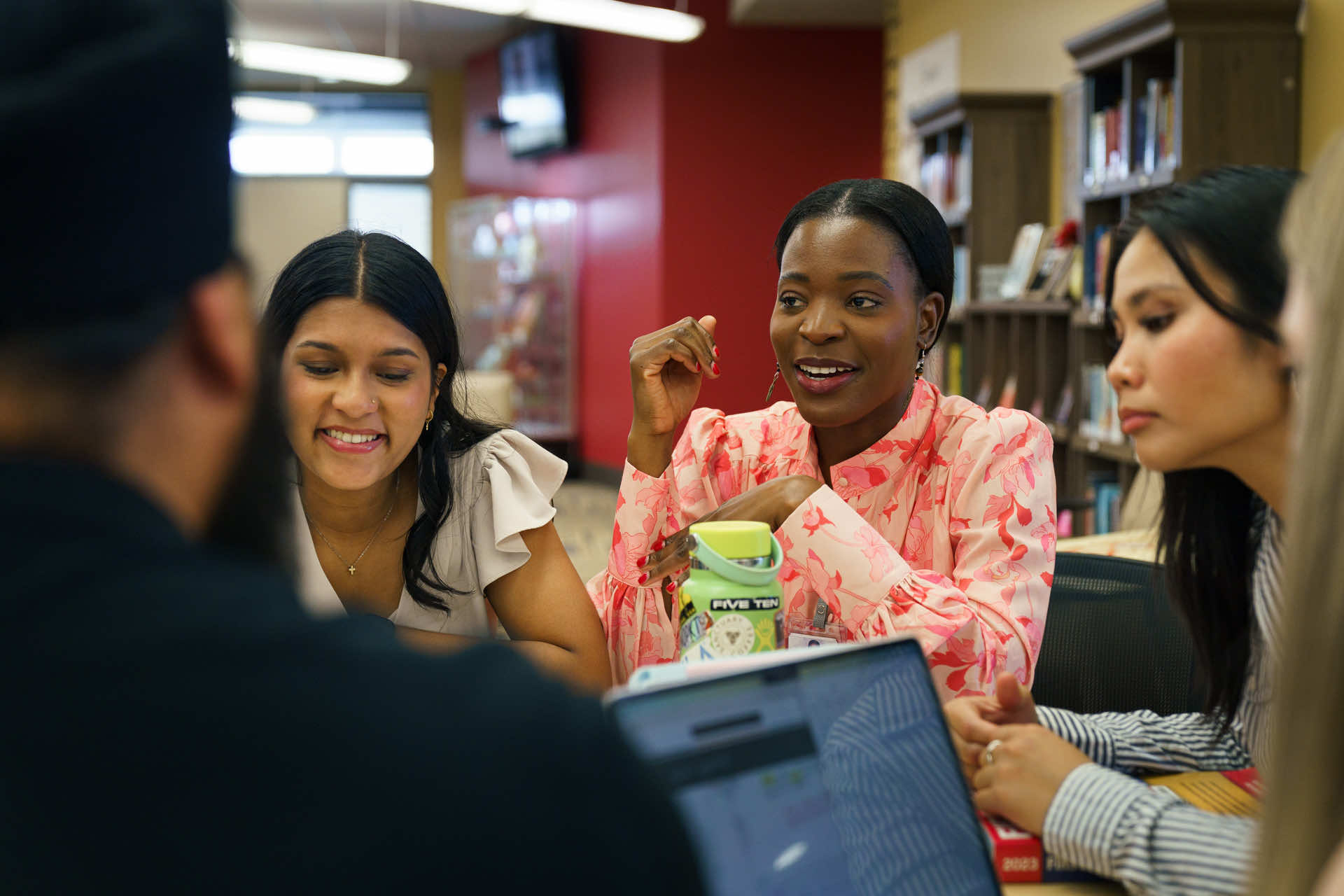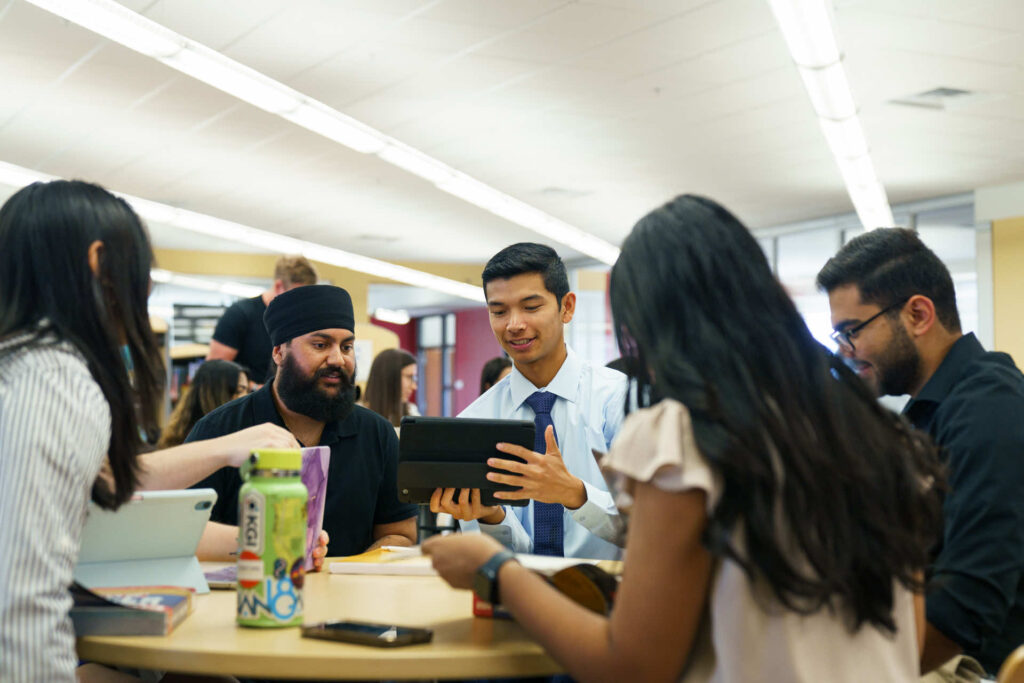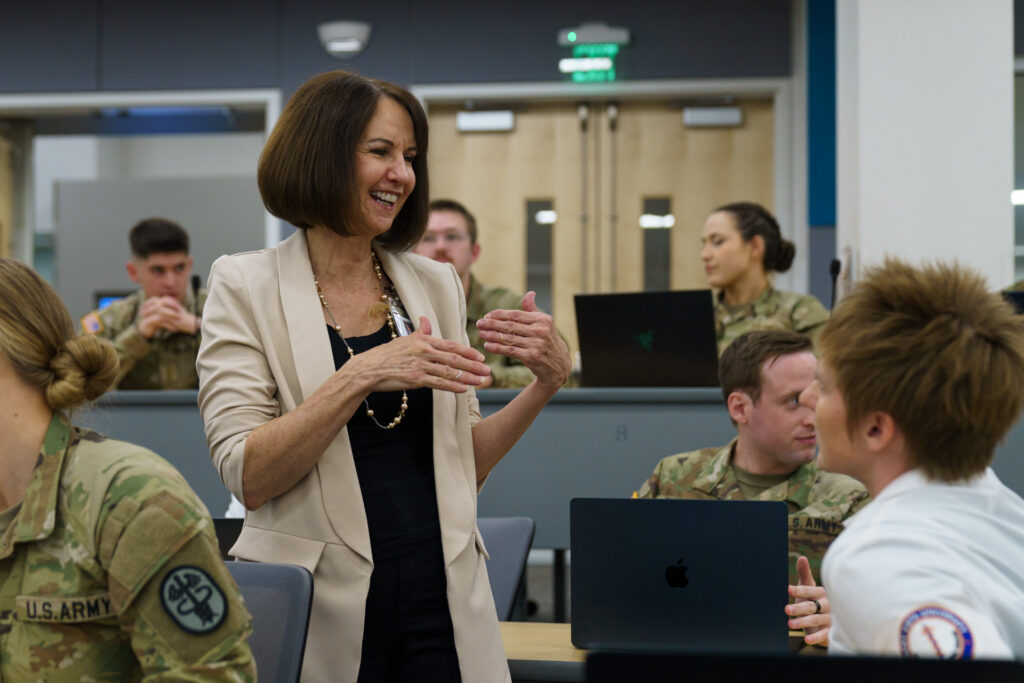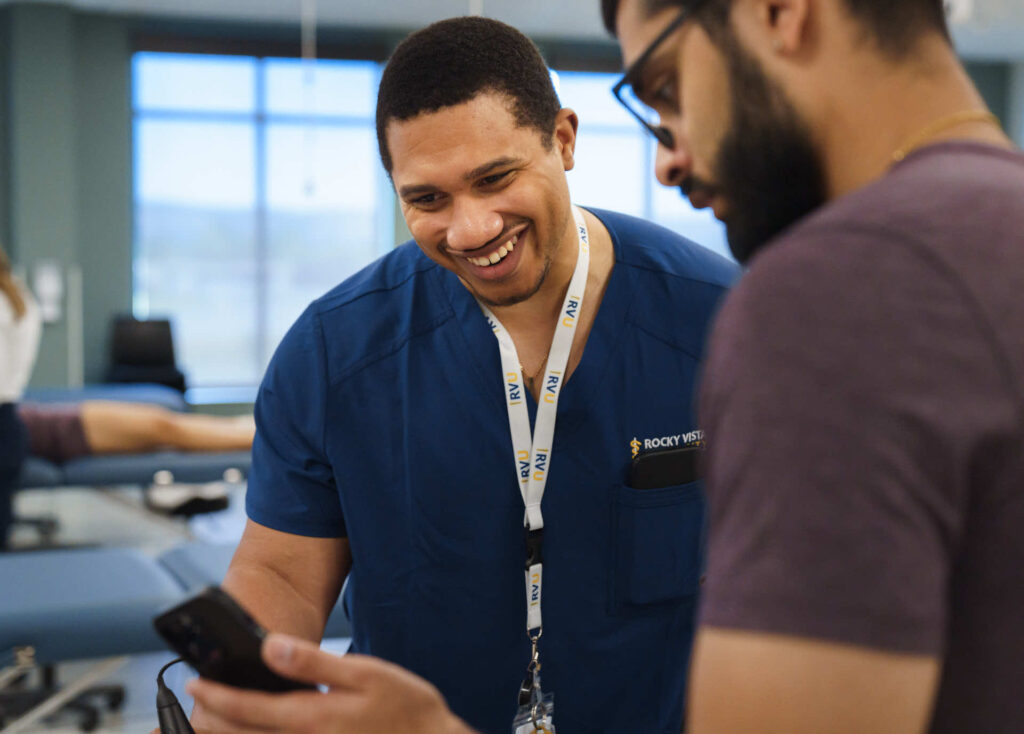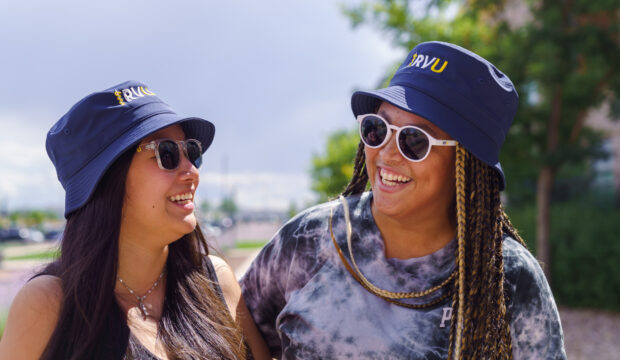The curriculum at RVU is intended to expose students to cross-cultural and intergroup dynamics in the successful treatment of diverse patients or work contexts with people from many backgrounds. And while it is the responsibility of the faculty (not the students) to present material related to student’s preparation for delivering services in diverse settings, the diversity present in the student body can also be a great source for acquiring cross-cultural information and learning about different groups.
Learning about your fellow Rocky Vista University (RVU) students who represent different group or social identities can add significantly and positively to your healthcare education experience. RVU is no different than many other educational institutions in that students encounter people from diverse backgrounds, including (but not limited to) race/ethnicity, sexual orientation, gender, gender identity, disability, veteran-status, nationality, religion, age, citizenship, and socio-economic status. Interacting with individuals who represent different cultural/social identity groups can be educationally beneficial, yet also challenging. That is, language, culture, worldviews, perspectives, customs, and traditions can be an asset in creating diverse learning environments and forming positive intercultural relationships, but can also become barriers that prevent students from creating conflict-free and productive learning and workplace climates.
The following are suggestions for enhancing your RVU intergroup learning experience via successfully interacting across cultural differences, easing the process of interacting across student individual and group differences, and maximizing the creation of positive and welcoming learning environments:
1 – Go out of your way to interact with as many students as you can, in particular with those who are different than you. RVU presents a tremendous opportunity to accomplish this goal. These interactions and dialogues will expand your knowledge about different individuals, identity groups, cultures, and backgrounds.
2 – Communication across diverse groups and individuals is a learned skill that will be helpful in your work as healthcare practitioners. Learning to effectively communicate in culturally diverse environments can be both extremely challenging and rewarding.
Thus, when interacting:
a. Be patient with other students and ask that they be patient with you as you try to learn about each other’s backgrounds.
b. In talking to someone who comes from a different background, try to ask questions in a respectful manner and at an appropriate time. Instead of asking, “Why don’t all Latinos speak Spanish?” try “I don’t know if you can answer a question for me. I’m not assuming that you can, but I was wondering if you could educate me a little bit on one aspect of Latino culture about which I have always been curious: Why do some Latinos speak Spanish and others do not?”
c. No matter how curious you are about someone’s physical characteristics or personal appearance, such as hair texture, color of skin, jewelry, or clothing, do not touch any of those personal items or characteristics unless you are given permission.
d. Allow each other to make mistakes as you develop your cross-cultural communication skills. Grant each other “redo’s” and use mistakes and unintentional insensitivities as learning moments. If you make a mistake, apologize for the error and commit to learning from your mistake in order to avoid the faux pas in the future.
e. If you are the person being asked about your cultural background, be patient with the people who are doing the asking. In many cases, the other person does not know how or what to ask and is simply trying to learn.
f. Keep your assumptions and stereotypes in check. Don’t assume. Ask questions. Often, these assumptions are based on damaging stereotypes and can inhibit people from forming trusting, effective, and authentic relationships. Practice using social justice education communication techniques, such as calling-in (i.e., respectfully correcting the person) vs calling-out (i.e., attacking and embarrassing the person), active listening, cognitive empathy (i.e., perspective-taking), non-personalizing of issues, and other techniques that support the learning process during difficult conversations.
g. It is also important to keep intersectionality in mind when interacting with fellow students. From the perspective of intersectionality, we are all both members of ingroups and outgroups, depending on which social identities are being discussed. Thus, the old maxim of “treat others the way you want to be treated” is appropriate when interacting across differences.
h. Do not rely on your fellow students as the single source of all your diversity questions and education. Take responsibility for your own education by reading, researching, and talking to experts in the field.
For additional information on or help and support in practicing the guidelines above, contact the RVU Office for Diversity, Equity, and Inclusion at 720-875-2825.
